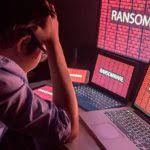PIH Hospital Hacked and Hackers Threaten to Leak 17 million Patients’ Data.
PIH Hospital has fallen victim to a ransomware attack, placing the sensitive personal and medical data of 17 million patients at risk. According to reports, the hackers are threatening to release this vast trove of private information unless a ransom is paid. The incident has sparked widespread concern among patients, cybersecurity experts, and healthcare officials, emphasizing the crucial need for stronger defenses against such threats.
The Ransomware Attack
PIH Hospital, a leading healthcare provider serving millions, is reeling from the breach after hackers infiltrated their system and gained access to patient records. In a menacing statement, the attackers claimed to possess confidential information, including names, addresses, Social Security numbers, medical histories, and financial details belonging to approximately 17 million patients.
The hackers have reportedly demanded a significant ransom in cryptocurrency, warning that they will leak the stolen data online if their demands are not met. As of now, the hospital has neither disclosed the specific amount of the ransom nor confirmed whether they intend to comply.
The breach is particularly concerning given the sensitive nature of healthcare data, which is often more valuable than other forms of personal information due to its potential misuse for identity theft, blackmail, and other fraudulent activities.
Implications for Patients from The Ransomware Attack
The potential fallout for the affected patients is dire. If the hackers follow through on their threat, victims could face identity theft, financial fraud, and other long-term consequences. Additionally, the exposure of private medical histories could lead to embarrassment, stigma, or even discrimination in certain cases.
In interviews with local media, some PIH Hospital patients expressed outrage, demanding answers about how the hospital failed to protect their data. Others said they were concerned about the wider implications of the breach, as hospitals increasingly become targets for cybercriminals due to the wealth of data they hold and the critical nature of their services.
Hospital’s Response
In a statement released shortly after the breach, PIH Hospital confirmed the cyberattack but stopped short of providing further details, citing the ongoing investigation. The hospital assured patients that they had engaged cybersecurity experts to determine the extent of the damage and to restore affected systems.
However, cybersecurity analysts have pointed out that recovering from such a breach can take months and that the damage to patient trust can linger far longer. Additionally, hospitals that pay ransoms not only risk encouraging future attacks but also have no guarantee that the stolen data will be deleted.
A Growing Threat
This incident underscores the growing menace of ransomware attacks on healthcare organizations. In 2022 alone, ransomware gangs targeted hundreds of hospitals worldwide, often disrupting critical patient care and demanding exorbitant payments. Healthcare institutions face the dual challenge of managing tight budgets while protecting ever-increasing volumes of digital data.
Experts also warn that the rise of ransomware-as-a-service (RaaS) platforms has lowered the barrier to entry for cybercriminals, making it easier than ever for hackers to launch devastating attacks.
What’s Next?
As investigations continue, patients and healthcare providers alike are left grappling with difficult questions about accountability and prevention. This incident reveals a stark reality: hospitals must urgently prioritize cybersecurity, investing in robust protections, regular security audits, and incident response plans.
For patients, experts suggest monitoring accounts for signs of identity theft, placing fraud alerts on credit reports, and considering identity theft protection services. Additionally, they encourage individuals to remain vigilant for phishing emails and scams that might exploit the breach.
Legislators and regulators might also take action as public outcry intensifies over the frequency and impact of such attacks. Calls for stricter regulations on data protection and harsher penalties for cybercriminals are likely to gain momentum.
Conclusion
The PIH Hospital hack is yet another wake-up call for the healthcare sector, exposing just how high the stakes are in the digital age. With 17 million patients’ data potentially at risk, this incident serves as a stark reminder of the devastating potential of cybercrime. It remains to be seen whether measures will be taken to prevent such attacks in the future or if the escalating cycle of breaches, ransoms, and data leaks will continue unchecked.








